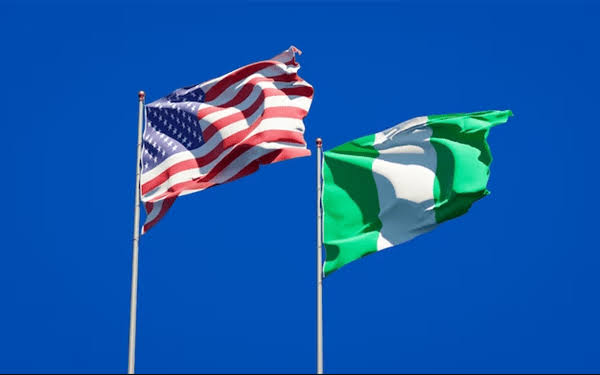CORRUPTION is still endemic in institutions of government in Nigeria, the Unit- ed States of America has claimed.
The claim, among several others, was part of its focus report on Nigeria in 2023.
The report, packaged by the United States Department of State, was titled: ‘ 2023 Country Reports on Human Rights Practices: Nigeria’.
Other African countries were also captured as well as other countries of the world.
Speaking on respect for the integrity of the person, the report claimed that: “There were reports the government or its agents committed ar- bitrary or unlawful killings, including extrajudicial killings.
“There were numerous kill- ings reported similar to the following examples. In January, police in Katsina opened fire after responding to a call at a wedding party, killing two and injuring three. On April 5, a police officer in Delta State killed a man for reportedly refusing to pay a N100 ($0.16) bribe at a checkpoint. The officer claimed the shooting was accidental. The officer was dismissed from the police force and faced prosecution for alleged murder.
“On July 2, three soldiers were reported to have opened fire on community neighborhood watch guards as the guards responded to reports of a bandit attack in Enugu State. Two guards were killed and four injured while the military accused the guards of being bandits them- selves.”
The report alleged that the cabinet of President Bola Tinubu was harbouring official corruption.
A portion of the report said: “Although the law provided penalties for corruption by officials, the government did not consistently implement the law. There were numerous reports of government corruption. Massive and widespread corruption affected all sectors of government, including the judiciary and security services.
“In August, President Tinubu appointed former governor Abubakar Bagudu the Minister of Budget, despite Bagudu’s widely reported his- tory of helping then-military ruler, Sani Abacha steal hundreds of millions of dollars from the government in the 1990s”.
The report didn’t stop at that knocking the judiciary, in the review of administration of justice and prisons’ deplorable situation.
The opening part of the executive summary reads: “There were no significant changes in the human rights situation in Nigeria in the past year.
“Significant human rights issues included credible reports of: arbitrary and unlawful killings, including ex-trajudicial killings; torture or cruel, inhuman, or degrading treatment or punishment by the government; harsh and life-threatening prison conditions; arbitrary arrest or detention; serious problems with the independence of the judiciary; arbitrary or unlawful interference with privacy; serious abuses in a conflict, including reportedly unlawful or widespread civilian deaths or harm, enforced disappearances or abductions, torture, and physical abuses”, were listed against the Nigerian State.
America also claimed Nigeria committed “serious restrictions on freedom of expression and media freedom, including violence or threats of violence against journalists and enforcement of criminal libel laws to limit expression; serious government corruption; extensive gender-based violence, including domestic or intimate partner violence, sexual violence, child, early and forced marriage, female genital mutilation/cutting, and other forms of such violence; and existence of any of the worst forms of child labor.”
The report further alleged that “only prisoners with money or support from their families had sufficient food. Prison employees sometimes stole money provided for prisoners’ food. Poor inmates sometimes relied on hand- outs from others to survive. Prison employees, police, and other security force personnel sometimes denied inmates food and medical treatment to punish them or extort money.
“Numerous detainees stated police demanded bribes to take them to court hearings or to release them.
“Security personnel reportedly arbitrarily arrested numerous persons during the year. In their prosecution of corruption cases, law enforcement and intelligence agencies did not always follow due process, arresting suspects without appropriate arrest and search warrants.
“Lengthy pretrial detention was a serious problem. Detainees often waited years to gain access to a court, and in many cases, multiple adjournments resulted in years-long delays. The shortage of trial judges, trial backlogs, endem- ic corruption, bureaucratic inertia, and undue political influence seriously hampered the judicial system.
More than a year after the 2023 general election, the United States admitted that supporters of the Labour Party and its presidential candidate, Peter Obi, were harassed and kept off the ballot in Lagos State, by agents and backers of the ruling All Progressives Congress (APC).
It, however, ruled the poll a reflection of popular will. According to the report, “National elections were widely reported to have reflected the will of voters, despite technical and logistical difficulties, and some irregularities.
“Many independent observers assessed the results of the presidential, legislative, and state-level elections during the year reflected the will of voters, despite reports of voter suppression and vote buying, campaigning at polling stations, lack of ballot secrecy, violence, and intimidation.
“During the March 18 state election in Lagos, All Progressives Congress (APC) supporters reportedly intimidated and suppressed voters in Igbo-dominated areas, which Labour Party presidential candidate an ethnically Igbo Peter Obi won in the February 25 national election.
“Viral videos on social media showed APC supporters in Ojo threatening to attack ethnic Igbo voters presumed to be pro-Obi.”
Read Also: Plateau attacks: How university students became victims
